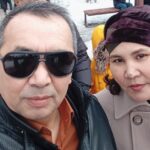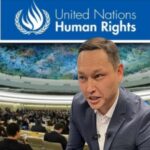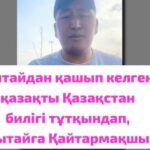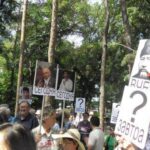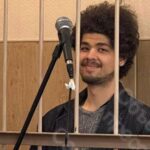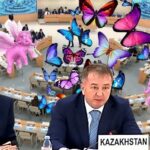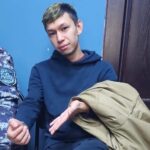Protection of fundamental rights in Kazakhstan, Tajikistan and
Turkmenistan:
Update on
developments in April-June 2014*
-
Developments
in Kazakhstan-
General situation
Overall the human rights situation in Kazakhstan remains troubling
but rather stable. In some areas certain progress has been observed, while
other recent developments signal deterioration in human rights protection.On 29 May 2014, Russia, Belarus and Kazakhstan signed an agreement
about the establishment of a Eurasian Economic Union (EEC). There are
concerns that this union may transform into a political instrument used by
Russia to exercise pressure on its partners. From the economic point of view,
there are concerns that sanctions imposed on Russia in connection with
developments in Ukraine may also affect its EEC partners.On 3 July 2014, President Nazarbaev signed into law the new Criminal
Code, which has been harshly
criticized by civil society since it contains provisions violating the
rights of citizens to freedom of association, freedom of expression and other
fundamental rights. The new Code on Administrative Offences, which was
also signed into law in early July, provides for numerous other
restrictions of rights such as freedom of expression, freedom of peaceful
assembly and freedom of religion. On 27 June, the president approved the new
Law on Trade Unions, which has been criticized by independent trade unions, the
World Federation of Trade Unions, the International Conference of Trade Unions
and the International Labour Organization. (See more information about these
law initiatives below under 1.2).In terms of progress, a National Torture Prevention Mechanism has
been introduced
under the Ombudsman, encompassing members from a number of human rights
organizations. Since the beginning of 2013 a consultative-advisory
body called “The Dialogue Platform on the Human Dimension” has also been
operating under the Ministry of Foreign Affairs. This body grants civil society
representatives the opportunity to discuss human rights issues with high-ranking
government officials. Out of 157 recommendations made by NGOs in this framework
so far, 93 have either been approved by government bodies or taken up for
consideration by Senate. However, recommendations made on the most sensitive human
rights issues (such as political rights and freedom of expression) have been
dismissed.At the end of October 2014 Kazakhstan will have to account for its
human rights policies to the UN Human Rights Council in the framework of
the Universal Periodic Review, and in November to the UN Committee against
Torture. -
Freedom of expression, assembly and association
New legislation
The new Criminal Code, which was signed into law by the president in
early July, extends the grounds for prosecution for defamation and retains sanctions
for defamation of up to three years in prison. As the previous Code, it also provides for
special protection against defamation for high-ranking officials. Moreover, a
new provision on perjury has been introduced into the Criminal Code and
provides for punishment of up to ten years in prison. The wording of this
provision creates the risk that an individual may be punished for the
legitimate expression of opinions, views and beliefs.The new Criminal
Code also introduces the concept of a “leader of a public association” as a
particular category of offender and provides for
stiffer penalties for individuals deemed to belong to this category than for
other individuals for a number of crimes. This is a
discriminatory approach that may result
in the persecution of members of public associations.A new provision on prohibiting “unlawful
interference in the activities of state agencies by members of public
associations” is also of great concern. The lack of clear and unambiguous
definitions of the terms used in this provision leaves room for government
officials to interpret legitimate requests by members of public associations as
unlawful interference in their activities, which will undermine public
oversight of authorities in the country.The newly adopted Code
on Administrative Offenses retains
excessive sanctions in the form of the suspension and closure of media outlets
for violations of a technical nature.A new provision of this Code on “violating
the legislation on public associations” allows for suspending and even terminating the activities of public associations
for minor violations of a technical nature, as well as for penalizing public
associations for carrying out lawful activities that have not been spelled out
in their statutes. This provision gives rise to particular
concern with respect to religious communities.The new Law on Trade Unions, which was signed by the president in late
June, puts into question the very existence of independent trade unions
as it implies that all trade unions will be subordinated to branch, republican
and other structures controlled by the government.According to information
from Kazakhstan’s government, amendments to legislation concerning the
activities of NGOs are currently being elaborated, and the experience of
foreign countries will be taken into consideration in this process. There are
concerns that this may result in the introduction of repressive amendments
similar to those that have been proposed/adopted in other countries in the
region, in particular in Russia.Persecution of opposition media and journalists
The trend of court closures of independent newspapers continues.
Newspapers are being closed down on various questionable grounds, including
minor technical mistakes in their publishing information. Currently there are
only few independent newspapers left in the country.
-
-
On 18 July 2014, the
Almaty City Court upheld the February decision of a district court to close
down the Pravdivaya Gazeta, as a
result of which the decision gained legal force. The court decision was issued
in response to a request by the prosecutor to halt the newspaper’s operations
and annul its registration on the grounds that it had received three warnings about
violations of a technical nature in one year. These warnings were given to the
newspaper, among others, because its print run had been wrongly indicated and
publishing information had been printed unclearly in one of its issues. -
On 21 April 2014, the
Medeusky District Court in Almaty ruled that the Assandi Times constitutes a “structural part” of the opposition Respublika newspaper, which was banned
for alleged extremism in 2012, and therefore must stop its operations. On 12
June the Almaty City Court upheld the decision unchanged.
During the reporting period, there were a number of court proceedings
against journalists on defamation charges, including criminal defamation
charges.
-
On 5
March 2014, a criminal defamation case was opened against independent
journalist Natalia Sadykova under par. 3 of Criminal Code article 129, which
carries a penalty of up to 3 years in prison. The case was initiated on the
basis of a complaint from a former parliamentary deputy who claimed that an
article published at the Respublika
online portal, which he accused Natalia of authoring under a pseudonym, was
aimed at defaming him. On 17 March, the Aktobe City Court sanctioned Natalia’s
arrest in her absence. Since 9 March Natalia and her family have been in
Ukraine, from where she fears returning given the charges against her. Her
lawyer has been denied
access to case materials.Internet censorship
A number of opposition internet sites continue to be blocked without a court decision, including respublika-kaz.info,
socialismkz.info and ablyazov.org. The website of the newspaper Uralskay Nedelya (uralskweek.kz) was
temporarily blocked during the report period. Draft amendments to the Law on
Communications, which have been put forward but yet have to be dealt with in
the parliament, introduce
provisions allowing for blocking social media sites without a court
decision. -
On 13 June 2014, Kazakhstan
International Bureau for Human Rights and Rule of Law (KIBHR) received a
warning from the Ministry of Culture and Information concerning the
re-publication of information from the respublika-kaz.info site on the
organization’s site. The warning made reference to the December 2012 court
decision that banned Respublika as
extremist, along with 31 other media resources. The respublika-kaz.info site
was, however, not explicitly mentioned on the list of banned resources at the
time.Violations of the right to freedom of assembly
Most civil society groups that request local authorities to sanction the
organization of peaceful assemblies receive rejections, even when proposing to
organize actions in areas specifically designated for this purpose. Similarly
most peaceful assemblies that are held without official permission are
dispersed by police and organizers and participants are brought to
justice. Law enforcement authorities continue to apply the tactics of
“preventive detentions” whereby civil society activists are detained before
they have participated in protest actions and penalized as if they had taken
part in them.
-
On 29 May 2014, the
day when the agreement on the Eurasian Economic Union was signed, civil society
activist Ermek Narymbaev and his wife, blogger Nurali Aytelenov, journalist
Andrey Tsukanov and civil society activist Rinat Kibraev were detained in
Almaty and held for 3-12 hours. This was apparently done for the purpose of preventing
them from participating in possible protests against the signing of the
agreement. A number of civil society activists, as well as Azzatyk journalist Orken Bisenov, who was working on a story about
a planned protest, were also detained in Astana
on the eve of the signing of the agreement and sentenced to arrests for alleged
administrative offenses. Other activists were given
written warnings not to participate in unsanctioned protests.
On several occasions during the reporting period, participants in protests
against unlawful evictions in Astana were detained
together with their children. A number of journalists were detained by
police when covering peaceful assemblies, and one journalist was beaten. Journalists were also penalized as participants in
assemblies, although they were only present to report on them. In some cases,
the police approach against unsanctioned peaceful assemblies reached absurd
proportions, such as in the city of Kostanay where police detained
girls engaged as promoters in a shopping centre because they were carrying
promotional posters.
-
Equality before the law, non-discrimination and access to justice of
vulnerable groupsAn analysis of complaints received by KIBHR from citizens indicates that
violations of the rights of detainees and defendants are common at
basically all stages of the criminal process in Kazakhstan. During the
reporting period, complaints concerned in particular violations of the right to
have adequate time and facilities for the preparation of one’s defence and to
communicate with counsel of one’s own choosing (ICCPR article 14.3.b); the
right to be tried without undue delay (ICCPR article 14.3.c); and the right not
to be compelled to testify against oneself or to confess guilt (ICCPR article
14.3.g).Complaints from citizens also showed that the
principle of equality of arms is not always respected during court
proceedings and that judges ignore and fail to take into account statements
made by defence witnesses.Moreover, sometimes petitions by citizens were
not admitted and registered by law enforcement authorities, which
undermines the right to have access to justice. Other problems include the low
level of legal literacy among certain vulnerable groups of the population and
the lack of opportunities for e.g. residents in remote and economically disadvantaged
regions and migrants to obtain qualified legal assistance because they cannot
afford to pay for such services and there is a lack of offer of free legal
assistance.Violations of the right to a far trial and
equality of arms are particularly common during politically motivated court
proceedings. KIBHR observers found that legal provisions protecting the
right to an effective defence, including the right to have access to a lawyer,
are often not realized in practice in cases involving e.g. journalists and
civil society activists.In May 2013 a group of representatives of Kazakhstani human rights and
civil society organizations compiled a
list of persons considered to be political prisoners in Kazakhstan,
using criteria developed on the basis of those used by Amnesty International
and the Parliamentary Assembly of the Council of Europe (PACE) for this
purpose. The list has subsequently been updated and expanded. Political, civic
and religious activists have been included on it. Among those currently held on
political grounds in the country are opposition leader Vladimir Kozlov, human
rights activists Roza Tulataeva (defending the rights or oil workers) and Vadim
Kuramshin (defending the rights of prisoners) and lawyer Zinaida Mukhortova,
who was again forcibly
placed in a psychiatric clinic at the beginning of July 2014. (For
background information on the cases of these individuals, see KIBHR-IPHR briefing
paper).Monitors observed media stories expressing negative and insulting
attitudes towards members of sexual and religious minorities, as well as
other examples of intolerance toward such groups.
-
On 16 May 2014,
activists from the “AntiGay” movement organized a protest in Almaty, blocking
the entrance to a night club oriented at members of sexual minorities. The
activists claimed that they wanted to attract attention to the “threatening
increase” in the number of people of alternative sexual orientation.Many cases of discrimination in job
ads
were observed, in particular on the grounds of gender and age. -
In response to a suit
filed by the Almaty prosecutor, in early June 2014 a court deemed unlawful the
publication on four websites of job ads featuring requirements regarding the sex
and age of applicants. This decision was believed to be the result of
campaigning against labour discrimination carried out by the NGO “Civil Defence,”
which had monitored and brought attention to discriminatory job ads.
-
Developments
in Tajikistan-
General situation
On 23 April 2014, Tajikistan’s President Emomali Rahkmon delivered his
annual address to the parliament, laying out the political and economic course
of the country. He also dealt with issues concerning the rule of law, referring
in particular to a new program of judicial reform to be adopted for the
next three years. While this program is currently in the process of being
elaborated, civil society has not been granted access to it. (See more information
below under 2.3.).
-
On 21 May 2014 law
enforcement authorities carried out an operation
to detain suspects in the city of Khorog in the Gorno-Badakhshan
Autonomous Oblast (GBAO), in the course of which two
local residents were shot and killed. This incident provoked protests and riots
among the local population, who were dissatisfied with the actions of
authorities. (See more information below under 2.2.).
Following the
Khorog events, government officials accused foreign states of trying to destabilize the situation in the country
and, in this context, researcher
Alexander Sodiqov was detained on accusations of spying when he was
conducting research about conflict resolution in Khorog. His detention has been
widely criticized by representatives of the international community (See more
below under 2.2.).
In May 2014 the UN Committee on Economic, Social
and Cultural Rights conducted a pre-sessional review of Tajikistan’s
implementation of the corresponding convention and adopted a list of issues that the Tajikistani authorities are requested to respond to ahead of
the upcoming full review of the country. Issues concerning poverty, corruption,
forced evictions, migrants and disabled people were among those addressed by
the Committee, as reflected in the list of issues. Tajikistani NGOs prepared a joint report for the review and were present in Geneva to brief the Committee.
A new round of the EU-Tajikistan Human Rights
Dialogue took place in Dushanbe in June 2014. According to a press
release issued by the EU, the EU expressed concern, among others, about
shortcomings in the 2013 presidential elections, reports about alleged
mistreatment of detainees and the blocking of websites and other restrictions on
freedom of expression. Nota Bene and other Tajikistani NGOs provided
information for the dialogue in advance, and recommendations
adopted at an EU-organized civil society seminar in Dushanbe last year fed into the meeting.
-
Freedom of expression, assembly and association
Harassment of media and journalists and internet
censorshipThe situation concerning freedom of expression remains alarming in
Tajikistan. In the past year (2013-2014) over 45 law suits have been brought
against journalists and media, including defamation suits. One criminal
case against a journalist was initiated. While some in the journalist and civil
society community consider this case to have been motivated by the journalist’s
professional activities, others have deemed it a regular criminal case.The high-profile case of the “intelligentsia” against the weekly Asia Plus and its editor Olga Tutubalina especially agitated the journalist
community and undermined openness and freedom of expression and media in the
country.
-
In this case, the
plaintiffs claimed
that an article authored by Tutubalina, which was published in Asia Plus in June 2013, offended all
representatives of the “intelligentsia” in the country. The suit was submitted with the support of five state-funded bodies – the unions
of writers, artists, composers and architects, and the Academy of Sciences.
Following a lengthy process, in February 2014, a Dushanbe district court ruled
against Tutubalina and Asia Plus and
ordered them to pay 30.000 Somoni (4.500 EUR) in compensation to the
plaintiffs. Representatives of the international community, including the OSCE Representative on the Freedom of the
Media expressed concern about the decision. The
ruling was twice upheld on appeal. Currently the defenсe
lawyers are preparing a third appeal.
There have also been cases where private companies have threatened
journalists, while law enforcement authorities have failed to take
appropriate measures to prevent or investigate such cases.
-
Isoev Orzy, a
journalist at the radio station Imruz,
filed a complaint with law enforcement authorities about threats he received by
SMS and phone from representatives of the Q-net company after he made comments
about this company during his radio show in May 2014. At the moment, no
investigation into the matter is known to be under way.
A major problem that affects many residents of the country is the regular
blocking of websites, such as news sites and social media sites implemented
by internet providers in response to informal orders from the government
communications service. In June 2014 providers again blocked several sites,
including YouTube, Gmail and other Google resources. In the past year, YouTube
has been blocked four times in the country.
The May 2014 events in Khorog
The law enforcement
operation carried in Khorog, the administrative center of GBAO, in late May
resulted in clashes between local
residents and law enforcement authorities. Among others,
administrative buildings were put on fire. In total three people died and five
were injured during the clashes. An investigation into these events has been
initiated.
The GBAO, which is located on the border to
Afghanistan and inhabited by Pamiri ethnic groups, is considered the
economically most disadvantaged region of Tajikistan. There is a high level
of distrust toward the central authorities, which was reinforced following the
special military operation carried out in Khorog in the summer of 2012 when at
least 22 local residents were killed. A monitoring group from the Civic
Solidarity Platform concluded that the authorities have failed to carry out an effective
investigation into this operation and reliable information about the number of
victims is still missing.
In connection with
the May 2014 events, phone connections
in GBAO were blocked, as a result of which residents were unable to
communicate both with people from other regions and others in their own region
for several days. Because of this journalists were also not able to obtain
information about the events in the region and relatives were not able to get
through to loved ones living there.
At a several day long protest meeting, local
residents in Khorog protested the actions of law enforcement authorities during
the operation conducted on 21 May and adopted
a statement, demanding an objective
investigation of it. Eventually a joint investigation commission composed
of representatives of the general prosecutor’s office and civil society was set
up. In late June, however, the civil society members of this commission
expressed concern about difficulties faced in the implementation of the work of the commission, such as lack
of participation of representatives from the prosecutor’s office in it.
Following the May events in Khorog, government
officials repeatedly accused foreign states of trying to undermine stability
in the country. For example, during a speech on 19 June 2014, Head of the
State Committee on National Security (SCNS) Saimumin Yatimov claimed that foreign security services “cooperate with organized criminals” and
mobilize them for efforts directed against the security of the country. Prior
to this, Head of the Parliamentary Defence and Security Committee
Amirkul Azimov questioned the purpose of visits by foreign diplomats to GBAO, suggesting that
such visits may reflect attempts to destabilize the situation there. Another
parliamentary deputy proposed to regulate the visits of foreigners to border regions.
Moreover, in this context, Tajik researcher
Alexander Sodiqov, who is resident in Canada, was detained.
-
Alexander Sodiqov, a
PhD student at the University of Toronto and a researcher at the University of
Exeter, was detained in Khorog on 16 June, as he was talking to a civil society
representative about the May events in the city. The following day the SCNS
published a statement, saying that he had been detained “while implementing a task for the
security services of a foreign country.” For several days there was no
information about his whereabouts, and only on 19 June it was announced that he
had been transferred to a SCNS detention facility in Dushanbe and that an
arrest order had been issued against him. For a week, he had no access to his
family or a lawyer. Subsequently he was granted a lawyer and later two more
lawyers started working on his case. The secrecy surrounding Sodiqov’s
detention, the initial incommunicado nature of it, and the airing on TV of
excerpts from the questioning of him violate his right to liberty and security,
due process, as well as protection from torture and ill-treatment. This case
also give rise to concerns in view of the right to freedom of expression and
information, and it may seriously undermine international cooperation on
research of the Central Eurasian region, as well as efforts to obtain
first-hand information about developments in this region.
Constitutional Court
ruling on the Law on Public Associations
Tajikistan’s Law on
Public Associations contains broadly worded
provisions regarding the grounds on which associations may be closed down by
court, and in recent years, a number of NGOs have been closed down without
evidence of serious violations. During the reporting period, the Constitutional Court issued a ruling
on this issue.
-
On 24 June 2014, the Constitutional Court issued its ruling in response
to a complaint filed by the Amparo Association of Young Lawyers, requesting the
court to recognize the Law on Public Associations as inconsistent the
Constitution. At the end of 2012 Amparo was closed down by court for violations
of a technical nature, a decision that was upheld on appeal. In its ruling, the
Constitutional Court recognized that the provisions of the Law on Public
Associations that concern the closure of NGOs are not sufficiently clearly
formulated and should be amended by the parliament. However, it did not agree
with the petitioners that these provisions violate the Constitution. In light
of recent developments (as described above), there are concerns that the
elaboration of new draft legislation on NGOs may be used to limit NGO
activities further rather than to strenghten safeguards against abuse.
-
Equality before the law, non-discrimination and access to justice of
vulnerable groupsDuring his annual address to the parliament in April 2014, the president
referred to the elaboration of a new program on judicial reform in the country.
The previous program in this area was implemented in 2011-2013, after which its
realization was assessed and recommendations made. Currently the Supreme Court
is working on the new program. All efforts by civil society to obtain a copy of
the draft program or information about it have failed.A new draft Law on Lawyers is currently being considered by a
working group in the parliament. It is planned that it will be presented at the
parliament’s autumn session. A Concept of Legal Assistance, which is
aimed at creating a new effective mechanism for the provision of free
assistance, is currently being elaborated by the government.
In a speech held on 5
June 2014, Tajikistan’s Minister of Interior Ramazon Rahimzoda called for intensified measures in the fight against so-called crimes against
morality, referring in particular to practicing prostitution, which is an
administrative offense in the country. According to a communiqué issued by the
Ministry of Interior on 12 June, as a result of raids carried out among sex
workers on 6-10 June, over 500 individuals were detained and subsequently
photographed, fingerprinted and forced to undergo medical tests for sexually
transmitted diseases, including HIV. The communiqué also stated that three
individuals suspected of “homosexual behavior” were among those detained,
although homosexuality is not an offense in Tajikistan.
In a joint appeal to the minister of interior,
over 30 NGOs from Tajikistan and other countries stated that while the
authorities have an obligation to take effective measures to combat sexual
exploitation and trafficking in human beings, such initiatives should be implemented strictly in
accordance with national and international law and applicable human rights
standards. The letter noted that information obtained by local NGOs
indicated that detentions carried out in at least Dushanbe involved violations
of procedural rights, such as failure to promptly register detentions and bring
detainees before a judge and to grant detainees access to a lawyer from the
moment of their apprehension. Detained individuals were also targeted for
compulsory registration of personal information and compulsory medical tests on
the mere suspicion that they were involved in prostitution or other offenses
and they faced insults, beatings and blackmail attempts. Moreover, the appeal
pointed out that the detention of some individuals on the sole basis of their
sexual orientation is a serious violation of national and international
provisions prohibiting discrimination.
There was a quick
response to the NGO appeal. A group of “intellectuals” published an open letter
in the weekly Farazh, where they
expressed support for the government’s policies in this area and seriously
criticized NGOs. In an official response, the Ministry of Interior argued that
all initiatives taken in the fight against crimes of a “moral character” are
necessary and based on law, making reference to international norms. This
letter used a similar style of presentation and similar arguments as in the
open letter published by “intellectuals.”
-
Developments in Turkmenistan
-
General situation
According to official information
President Berdymuhammedov decreed in May 2014 that a commission should be set
up to elaborate proposals for a reform of the Constitution aimed at
bringing it into line with international standards. The president called for
paying particular attention to improving the judicial protection of human
rights and indicated that the reform should include the establishment of a
human rights ombudsman’s office. This will be the second constitutional reform
since Berdymuhammedov’s rise to power in 2007.
At its session in Geneva on 16-20 June 2014, the UN
Child Rights Committee began its second review of Turkmenistan under the
Convention of the Rights of the Child. The Committee adopted a so-called list
of issues that the Turkmen authorities will be asked to respond to ahead of
the final stage of the review, which is scheduled to take place in January
2015. In a statement
issued ahead of the review, Turkmen Initiative for Human Rights (TIHR) and IPHR
highlighted major concerns and urged the Committee to request the Turkmen
government to account in detail for its policies in these areas. TIHR was also
present in Geneva to brief committee members on issues covered in its report
submitted for the review.The Turkmen authorities continue to use questionable
methods to promote patriotism among citizens. For example, in May 2014,
parents of school children were reportedly required to sign
pledges to bring up their children “to comply with the tradition, customs
and culture of the Turkmen nation.” In a well-established practice, school
children and students are regularly forced to participate in mass parades and
other events organized by the authorities on the occasion of national holidays. -
Freedom of expression, assembly and association
Freedom of expression developments
Turkmenistan’s first ever Law on Mass Media, which
entered into force in January 2013, prohibits censorship. However, censorship
practices continue to be applied in relation to both traditional
media and the internet, and the authorities continue to prevent access to
information about developments in- and outside the country, which they fear
could contribute to discontent and unrest among citizens. For example,
information about natural disasters, outbreaks of epidemic diseases and
accidents is deemed classified and media are not allowed to report about it.
-
According to information
obtained by TIHR, on 6 June 2014, a Turkmen Air Force fighter crashed at
the outskirts of the city of Mary, hitting a residential house and killing a
trainee pilot and instructor. Soon after the incident, secret services
officials requested
residents of the neighbourhood where the plane crashed to sign pledges not to
disclose any information about the incident.
The Russian cell phone operator MTS reported facing
obstruction from the authorities in launching a 3GB network and
offering more attractive services to customers, including with respect to
internet access. MTS, which was allowed to return to Turkmenistan in 2012, is the
only competitor to the state-run Altyn Asyr operator. Internet connections in
the country are generally slow and expensive.
In April 2014, the Turkmen president signed a decree
according to which some 100.000 net books will be given to first
graders at the start of the new school year. This practice was introduced in
2011 to promote computer literacy and use among students. However, the
computers have often only been put to limited use,
e.g. because teachers do not allow their students to use the computers out of
fear that they will be held responsible in case the computers break. Parents
have been required to buy computer equipment and help co-finance
storage places for computers. There is no internet access in most schools.
-
As reported by TIHR,
in April 2014, Klychmurad Yarmamedov, a renowned sculptor whose art works are
known beyond Turkmenistan, was expelled
from the Turkmen Academy of Arts after publicly calling for efforts to improve
the education level of students at this institution and the quality of art in
the country. His statements were apparently perceived as criticism of
government policies.
-
On 2 June 2014
Amnesty International (AI) published an appeal,
urging the Turkmen authorities to grant a retrial to Mansur Mingelov, an
unfairly imprisoned human rights activist who began a hunger strike on 19 May
to protest his sentence. Mingelov was arrested in 2012 and convicted to 22
years in prison for alleged drug and child pornography offences after
documenting evidence of police torture against members of the Baloch ethnic
minority. Being in a critical condition, he reportedly ended
his hunger strike on 8 June after a number of Turkmen officials visited him in
the Seidi labour camp where he is held and the treatment of him there improved.
The same day as the AI appeal was published, the president made a statement, emphasizing
the necessity of upholding the rule of law and demanding a careful
consideration of each criminal case and a thorough examination of complaints
from citizens.
-
TIHR and individuals
associated with this organization have repeatedly faced harassment. On 10 April
2014, Turkmen authorities prevented Ruslan Tuhkbatullin from flying from
Turkmenistan to Turkey to meet his brother, TIHR head Farid Tuhkbatullin. Ruslan
was informed that he and his 9-year-old son have been black-listed from
travelling abroad. He was told that he could ask the the Migration Service for
an explanation. However, although he did, he has not received any reply to
date. Human Rights Watch and Amnesty International published a statement
on 20 May, denouncing the arbitrary restriction of freedom of movement in this
case, saying that authorities were obviously trying to retaliate against Farid
Tuhkbatullin for his human rights work.
Freedom of association and assembly
The environment for NGOs remains repressive in
Turkmenistan. On 3 May 2014, the president signed a new comprehensive Law on
Public Associations that replaced a previous law from 2003. The law grants
citizens the right to establish and join public associations of their own
choice and allows foreign organisations to establish branches in Turkmenistan.
It also prohibits state interference in the activities of associations.
However, basic provisions of the law remain problematic, such as a requirement
of compulsory registration of associations, strict registration rules and
provisions granting authorities wide powers to monitor and oversee the
activities of associations. There are concerns that the law will not result in
any improvements in practice, similarly to the new Media Law adopted in 2013.
Up to now, no new NGO is known to have been registered since the entry into
force of the new law.
The overhanging
threat of reprisals effetively discourages public protests in Turkmenistan.
However, spontaneous small-scale protests have
occasionally taken place in the last few years in response to arbitrary actions
of authorities. TIHR has reported five such incidents since 2011. These
incidents have not been covered in national media and in most cases authorities
have conceded at least partly to the requests of protesters, apparently for the
purpose of preventing wider protests.
-
On 23 June 2014,
residents of an Ashgabat neighbourhood refused
to comply with the orders of visiting local officials, who demanded that
they dismantle their air conditioning units because these allegedly spoil the
exterior of apartment buildings. Upset about this order made at a time of hot
outside temperatures, these residents went out into the streets and started
chasing the officials away, after which police, military and security service
officers were called to the place. Finally the residents were assured that the air conditioning units would not be
dismantled. For several days security service officers tried to track down the
“instigators” of the protests.
-
Equality before the law, non-discrimination and access to justice of
vulnerable groups
As part of the Turkmenization policies that were
heavily promoted by late President Niyazov and strongly criticized by the
international community, schools of national minorities were closed and
instruction in Russian cut back. While instruction in Russian has continued in
selected classes in larger cities, TIHR has received reports that such
instruction is now being further reduced.
For example, in the city of Dashoguz, only two schools will enrol
first graders in classes with Russian as the language of instruction as of the
next school year, compared to four schools previously. A local education
official justified this decision by claiming that the number of children from
families holding Russian citizenship or Russian migrant status has decreased,
which can be seen in connection with the pressure long faced by dual
Turkmen-Russian citizens to either give up their Russian citizenship or leave
the country.
In mid-2008 new
biometric passports for travel abroad were introduced in Turkmenistan with a
transition period of five years. Dual citizens were required to renounce their
second citizenship to obtain new passports. Following a series of negotiations,
Turkmenistan and Russia agreed in May 2013 that new passports will be issued to
dual Turkmen-Russian nationals who obtained their Russian citizenship before June
2003. However, as reported
by TIHR, in April 2014, the Turkmen State Migration office suspended the issuance of biometric
passports also to this category of dual citizens without providing any
further explanations. This sudden change of policy affected, among others, dual
citizens resident in Russia who had come to Turkmenistan to obtain new
passports and now found themselves stuck there for a long time. It also
contributed to reinforcing corruption, with officials accepting bribes to
process applications informally.
Stateless persons
have experienced
difficulties in leaving the country since the authorities stopped issuing
passports to them in October 2013, referring to a law in the process of being
adopted concerning the granting of citizenship to this category of residents.
This law entered into force only in late June 2014.
TIHR reported about the continued
practice of arbitrary evictions in connection with the demolition of
residential buildings in Ashgabat to make room for government construction
projects, such as office buildings, hotels and monuments. Residents are usually
requested to leave their homes at short
notice and many are not provided with adequate compensation, e.g. they are
not provided with alternative accommodation that corresponds in space to their
previous accommodation; they receive compensation that is below the real value
of their property; or they are promised alternative accommodation only in
two-three years’ time. Over 300 families were accommodated in makeshift
barracks on the outskirts of Ashgabat following the destruction of their homes.
There are fears that the construction of sport facilities for the Asiada
competition scheduled for 2017 may result in further evictions.
After TIHR website published articles about the
problem of evictions, the minister of construction and architecture was
replaced as part of a governmental
reshuffle in April 2014. However, this does not appear to have helped stop
the practice of arbitrary evictions.



